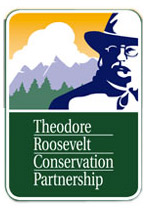 From TRCP:
From TRCP:
Monday, April 20, marks the five-year anniversary of the BP Deepwater Horizon oil disaster, and half a decade later, the recreational fishing community remains committed to ensuring oil spill recovery dollars are used to improve habitat and management of the Gulf of Mexico’s fisheries and guarantee continued access to world-class fishing opportunities.
The Theodore Roosevelt Conservation Partnership and its partners—the Center for Coastal Conservation, the Coastal Conservation Association (CCA) of Louisiana, and the American Sportfishing Association—are renewing their dedication to this important opportunity in the Gulf region. In 2013, this coalition convened workshops in all five Gulf Coast states to determine the recreational fishing community’s priorities for restoring and sustaining fisheries in the wake of the nation’s worst ecological disaster. Their broad recommendations were released in a detailed report and, in 2014, the coalition helped select 25 specific priority projects, including barrier-island and marsh restoration, shoreline protection, fish tagging, oyster reef construction, and water quality improvements, to undertake with restoration funding.
“Anglers have long been a driving force behind the conservation and restoration of fish species and habitat throughout the Gulf, because we understand that our sport cannot exist without healthy populations in these waters,” says Chris Macaluso, TRCP Center for Marine Fisheries director and lifelong Gulf angler, whose recent blog post is a very personal look back at the days and months following the spill. “Recreational fishermen came to us in 2013 with a host of critical habitat restoration projects, improvements to science and data collection, and ways to ensure that the access they lost to the spill could be fully repaired. Fortunately, the entire conservation community shares these goals, and five years after the Deepwater Horizon oil disaster, the recreational fishing community’s commitment to better habitat and sustainable fisheries has never been stronger.”
Communities across the Gulf depend upon angling activity to drive local economies, so an investment in quality fishing habitat and long-term fisheries sustainability is an investment in economic recovery. “Angling is a vital economic driver in the Gulf of Mexico region, with an impact of more than $10.3 billion annually and supporting nearly 100,000 jobs,” says Mike Leonard, ocean resource policy director for the American Sportfishing Association. “The unprecedented funds becoming available can help the Gulf’s ecosystems and communities recover.”
“Fines from the oil spill give Gulf States the opportunity to make wise investments in our fisheries habitat, management, and science—all of which are critical for fishermen across the Gulf to continue to have great experiences on the water,” says CCA Louisiana Executive Director David Cresson. “CCA Louisiana is committed to working with our state leaders and fisheries managers to ensure that we make those wise investments.”
Even as the Gulf region reaches this milestone, restoration efforts and funding decisions are still in the very early stages, and complacency on the part of sportsmen could result in the misdirection of funding.
“Sportsmen played a leading role in ensuring that oil spill recovery dollars would be directed back to the areas most affected over the last five years, and that commitment continues today,” says Jeff Angers, president of the Center for Coastal Conservation. “As we look back at the Deepwater Horizon disaster five years later, the recreational fishing community knows it must remain actively engaged in the process until all the recovery funds are committed to ensuring the best possible future for the Gulf.”
Join the TRCP on Facebook and Twitter as we look back on this disaster—and look forward to achievements in fisheries management—all day Monday. And read what four outdoor writers learned from an intimate tour of the area impacted by the spill.
Inspired by the legacy of Theodore Roosevelt, the TRCP is a coalition of organizations
and grassroots partners working together to preserve the traditions
of hunting and fishing.



